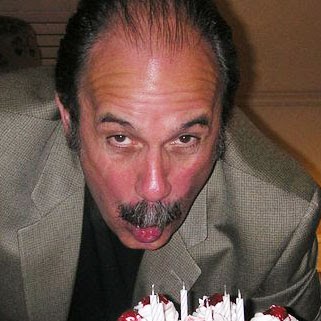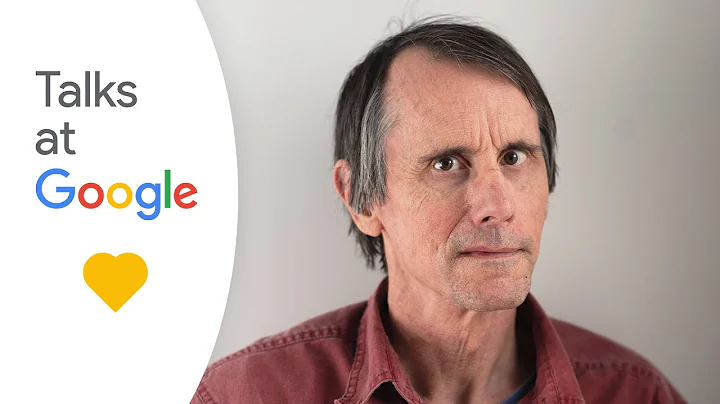Mark L Mattson
age ~72
from Montgomery, TX
- Also known as:
-
- Mark Loyd Mattson
- Phone and address:
- 11702 Twain Dr, Montgomery, TX 77356
Mark Mattson Phones & Addresses
- 11702 Twain Dr, Montgomery, TX 77356
- Galveston, TX
- Spring, TX
- Conroe, TX
- Spring Valley, CA
- San Diego, CA
- La Mesa, CA
Us Patents
-
Obstruction Detector Power Control
view source -
US Patent:8495834, Jul 30, 2013
-
Filed:Jan 7, 2011
-
Appl. No.:12/986815
-
Inventors:Steven A. Harlow - San Diego CA, US
Paul D. Kahn - San Diego CA, US
Mark C. Mattson - Carlsbad CA, US -
Assignee:Linear LLC - Carlsbad CA
-
International Classification:E05F 15/20
-
US Classification:49 28, 49199
-
Abstract:A method of powering an obstruction detector. Power is provided to an obstruction detector when a motor is executing a first movement and is suppressed to the obstruction detector when the motor is idle and when the motor is executing a second movement. The first movement moves a movable barrier towards a closed position, and the second movement moves the barrier towards an open position.
-
Garage Door Opener Battery Backup System
view source -
US Patent:20230108988, Apr 6, 2023
-
Filed:Oct 6, 2021
-
Appl. No.:17/495651
-
Inventors:- Carlsbad CA, US
Jari Niemela - San Diego CA, US
Gerald Dillon - Escondido CA, US
Mark C. Mattson - Carlsbad CA, US -
International Classification:E05F 15/668
E05F 15/695 -
Abstract:In one aspect, a garage door opener system includes a battery configured to be charged by a power source, a controller coupled to the battery, the controller configured to operate a motor that is powered only by the battery, at least one sensor coupled to the motor and the controller, the at least one sensor generating sensor data, and a battery monitoring system coupled to the battery, the controller, and the least one sensor, the battery monitoring system configured to monitor a power consumption of the battery and a state of the battery, and to update an operation configuration of the controller based on historical power consumption of the battery, the state of the battery, and the sensor data.
Isbn (Books And Publications)



The African American Atlas : Black History and Culture: An Illustrated Reference
view sourceAuthor
Mark T. Mattson
ISBN #
0028649842

Historical and Cultural Atlas of African Americans
view sourceAuthor
Mark T. Mattson
ISBN #
0028970217

Historical and Cultural Atlas of African Americans
view sourceAuthor
Mark T. Mattson
ISBN #
0028970292


Growing up in America: An Atlas of the Youth in the U. S. A.
view sourceAuthor
Mark T. Mattson
ISBN #
0028972627

Name / Title
Company / Classification
Phones & Addresses
BIONATURA DEL DR. ABEL CRUZ CO., INC
MNM REALTY MANAGEMENT LTD
INTREPID TECHNOLOGIES LTD
PETO'S MANAGEMENT GROUP, INC
RINSE MANAGEMENT GROUP, INC
CONSTRUCTION PHOTOGRAPHY GROUP LTD
MATTSON CONSULTING LTD
LAKERIDGETIMBERS DEVELOPMENT LLC
License Records
Mark Jeffrey Mattson
License #:
70107540 - Active
Category:
EMS Licensing
Issued Date:
Jan 21, 2016
Expiration Date:
Jun 30, 2018
Type:
EMT-Basic
Mark Loyd Mattson
Address:
3102 Cv Vw Blvd, Galveston, TX
License #:
24588 - Expired
Category:
Architect
Issued Date:
Jan 8, 2015
Expiration Date:
Dec 31, 2016
Resumes

Professional
view sourceLocation:
United States

Mark Mattson
view sourceLocation:
United States

Mark Mattson
view sourceLocation:
United States
Lawyers & Attorneys

Mark Mattson - Lawyer
view sourceISLN:
905087069
Admitted:
1987
University:
St. Olaf College, B.A., 1981
Law School:
University of Minnesota, J.D., 1987
Myspace
Googleplus

Mark Mattson

Mark Mattson

Mark Mattson

Mark Mattson

Mark Mattson

Mark Mattson

Mark Mattson

Mark Mattson
Plaxo

Mark Mattson
view sourceAnn Arbor, MI

Mattson, Mark
view sourceTexas Instruments
Flickr

Mark Mattson
view source
Mark Mattson
view source
Mark Mattson
view source
Mark Mattson
view source
Mark Mattson
view source
Mark Mattson
view source
Mark Mattson
view source
Mark Mattson
view sourceClassmates

Mark Mattson
view sourceSchools:
Reeths-Puffer High School Muskegon MI 1999-2003
Community:
Darlene Berg, Joe Puisis, Laura Gale

Mark Mattson
view sourceSchools:
Miles MacDonell Collegiate Institute Winnipeg Palestinian Territory, Occupie 1961-1965
Community:
Donnie Colvin, Lucie Snow, Oksana Sandra

Mark Mattson (Mattsson)
view sourceSchools:
Emma Havens Young Elementary School Brick NJ 1996-2001
Community:
Celia Velasquez, Alex Zielinski

Mark Mattson
view sourceSchools:
Central High School Kalamazoo MI 1956-1960
Community:
Jeff Davis, Loren Mckinstry, Faith Marciniak

Mark Mattson
view sourceSchools:
North Dickinson High School Iron Mountain MI 1984-1988
Community:
Kenneth Lynch, Nancy Leeman

Mark Mattson
view sourceSchools:
Millville High School Millville NJ 1973-1977
Community:
Tony Mazza, Teri Rostien, Michele Wiltin, Cole Adams, Sharon Hunsberger, Donna Mingin, Cyndi Alcox, Evelyn Quinn, Cynthia Paynter, Charlene Dubois

Mark Mattson
view sourceSchools:
Cascade Middle School Sedro Woolley WA 1998-2002
Community:
Sonie Underhill, Robert Parker, Mary O'neil

Mark Mattson
view sourceSchools:
Hope Lutheran School Levittown PA 1978-1985, Lacey Township Middle School Forked River NJ 1985-1987
Community:
Deborah Severini, Kelly Praizner, Christine Lesko
News

Eating in a 6-hour window and fasting for 18 hours might help you live longer
view source- Study author Mark Mattson, a professor of neuroscience at Johns Hopkins University, hones in on two types: Daily time-restricted feeding (eating 6-8 hours a day and fasting for 16-18 hours) and 5:2 intermittent fasting (fasting two days a week, usually capping a fasting day at 500 calories).
- Date: Jan 03, 2020
- Category: Health
- Source: Google

Goodbye, stressful diets? Intermittent fasting offers health benefits, study says. But it's not for everybody
view source- While intermittent fasting diets vary, the practices of alternating between certain periods of eating and not eating fall into two categories, said co-author Mark Mattson, a neuroscience professor at the Johns Hopkins School of Medicine. One restricts eating to six to eight hours per day and another
- Date: Dec 28, 2019
- Category: Health
- Source: Google

Fasting for 18 hours every day could help you live longer
view source- Upon reviewing all of the available data, researchers led by author Mark Mattson of Johns Hopkins University suggest that fasting either on a daily basis or for days at a time on a set schedule, can prompt the body to metabolize fats rather than store them. This, of course, leads to weight loss, but
- Date: Dec 26, 2019
- Category: Health
- Source: Google

Can Intermittent Fasting Help You Lose Weight And Improve Your Health?
view source- In an article published today in the New England Journal of Medicine, Mark Mattson, PhD, a neuroscientist at Johns Hopkins School of Medicine, explains the nuances behind the approach to IF, along with why he adopted this approach to eating more than 20 years ago.
- Date: Dec 25, 2019
- Category: Health
- Source: Google

Intermittent fasting improves exercise endurance, new study of mice suggests
view source- 'Emerging evidence suggests that [intermittent fasting] might improve overall health and reduce risk factors for diabetes and cardiovascular disease in humans,' said study author Mark Mattson, PhD, a senior investigator at the Laboratory of Neurosciences, National Institute on Aging, National Instit
- Date: Feb 27, 2018
- Category: Health
- Source: Google

What does a month of Ramadan fasting do, spiritually and physically?
view source- Fasting, as it happens, is also good for the body. To find out more about that, I spoke with Mark Mattson, a professor of neuroscience at Johns Hopkins University and chief of the Laboratory of Neurosciences at the National Institute on Aging. According to his research, he says fasting can be benefiMark Mattson: Well start with a typical Western eating pattern, which is three meals a day plus snacks. Every time you eat a meal, the energy mainly glucose goes into your liver and is stored in the form of glycogen. And that liver energy is always tapped into first. It is essentially never dep
- Date: Jun 02, 2017
- Category: World
- Source: Google

Midnight Snacks May Increase Risk For Breast Cancer Recurrence: Why Fasting Counts
view source- Most people are putting something in their mouths essentially every waking hour. But from an evolutionary perspective thats not how people or animals are genetically geared to eat, explainsneuroscientist Mark Mattson.
- Date: Apr 01, 2016
- Category: Health
- Source: Google

Severe diet doesn't prolong life, at least in monkeys
view source- Then there is Mark Mattson, chief of the laboratory of neurosciences at the National Institute on Aging, who was not part of the monkey study. He believes there is merit to caloric restriction. It can help the brain, he said, as well as make people healthier and probably make them live longer.
- Date: Aug 30, 2012
- Category: Sci/Tech
- Source: Google
Youtube
Get Report for Mark L Mattson from Montgomery, TX, age ~72













